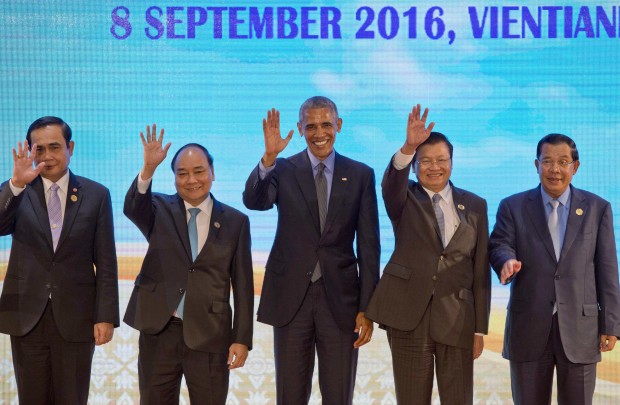
ASEAN wise to leave sea arbitration alone

The ASEAN summit released a joint statement on Wednesday, article 121-128 of which mentioned the South China Sea issue. Like the joint communiqué released by the ASEAN foreign ministers meeting in July, the latest statement did not mention the South China Sea arbitration. Rather, it stressed the importance and urgency of accelerating the negotiation process of the South China Sea Code of Conduct. The media predicted such a result and viewed it as a victory for China’s diplomacy.
The ASEAN summit and Leaders’ Meetings on East Asia Cooperation were held in Vientiane, Laos from Tuesday to Thursday. Chinese Premier Li Keqiangattended the China-ASEAN Leaders’ Meeting. The meeting agreed a number of joint statements, especially guidelines for their senior diplomats’ hotline in addressing emergencies at sea. They agreed on the application of the Code for Unplanned Encounters at Sea in the South China Sea.
Until Wednesday, the South China Sea issue had not been hyped in Vientiane. The Philippines did not publicly magnify the arbitration, and the other ASEAN members had avoided talking about this issue.
The issue has been cooling down, and regional countries do not want to hype it up. Instead, they have hoped that each side can manage crises and bring regional cooperation back to the center of public opinion.
This trend differs from the tense situation and people’s pessimistic predictions before and after the arbitration award was released.
But the crisis caused by the arbitration has not gone, because it is uncertain whether the US and Japan, the external catalysts of the farce, will coordinate to lower tensions in the South China Sea.
After the award, Japan was the most aggressive country in pushing ASEAN countries and external forces to implement the award. The US has been active as well. Given its long-term diplomatic maneuvering, it often awaits the proper time to poke its nose into the waters.
But now is not an era when a few imperial countries can decide everything. ASEAN members have the growing ability to exercise their independence fully. As long as regional countries hope for peace and stability and are determined to solve disputes through negotiations, Washington and Tokyo cannot intervene as they wish.
The biggest changing factor in the Asia-Pacific is China’s rise, and China is sincere in its desire to rise peacefully. Before US President Barack Obama leaves office, the South China Sea is expected to remain crisis-free.
China has won in the last round of competition over the South China Sea. The airport on the islands is ready, the new political waves around the South China Sea have been put under control, and China has gained some experiences of games between great powers.
If the South China Sea issue leads to abrupt geopolitical conflicts, history will not look back kindly. All sides should avoid viewing the waters as their source of deep-seated hatred. (People’s Daily)


